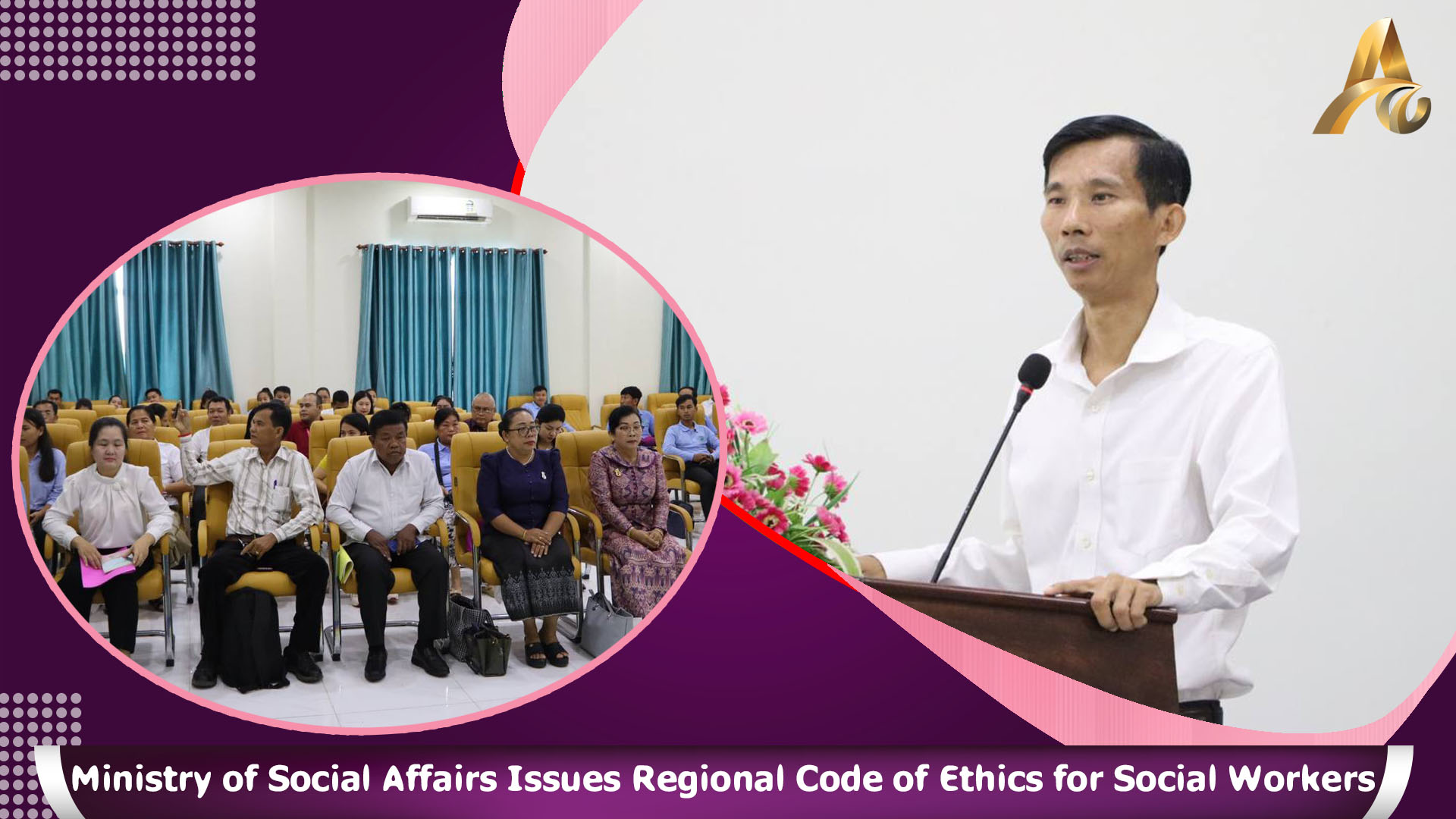SIHANOUKVILLE: The Director-General of the Department of Political and Social Affairs organized a seminar for September 13 to disseminate and implement its official proclamation on the professional ethics code of the social services at the regional level.
The workshop was attended by participants of eight Departments of Social Affairs from Sihanoukville, Kampot, Kep, Koh Kong, Kampong Speu, Prey Veng, Svay Rieng and Phnom Penh. Also in attendance were 70 representatives from the National Institute of Social Affairs, the Extraordinary Chambers in the Courts of Cambodia (ECCC), and social work organizations.
This code aims to define professional ethics for social service workers and promotes ethics, dignity, efficiency and quality of service in the delivery of social services. The code divides social service workers into four categories and lists the requirements for each.
1. Professional social workers are professionals who provide a full range of social services. Social workers must have a degree in social work, recognized by the Royal Government of the Kingdom of Cambodia, and licensed by a public professional body in the field of social work.
2. An associate social worker is a person who accompanies or assists a social worker. Associate social workers are trained to perform certain functions, but do not require certification or licensing from a social work professional body, but in some functions require a specialized degree.
3. Assistant social workers are those who are working in the social work sector or are volunteers, most of whom work in the community, with technical support from social workers or secondary social workers. Primary social workers serve the needs of clients, including children and families, especially where social welfare systems are not yet established or limited.
4. Associated social workers are those who provide social services but are associated with other areas such as education, health or justice. Examples include: nurses, lawyers, doctors, teachers, and others. Associated social workers perform a variety of functions that improve the support or coordination of functions performed by other social services.




























